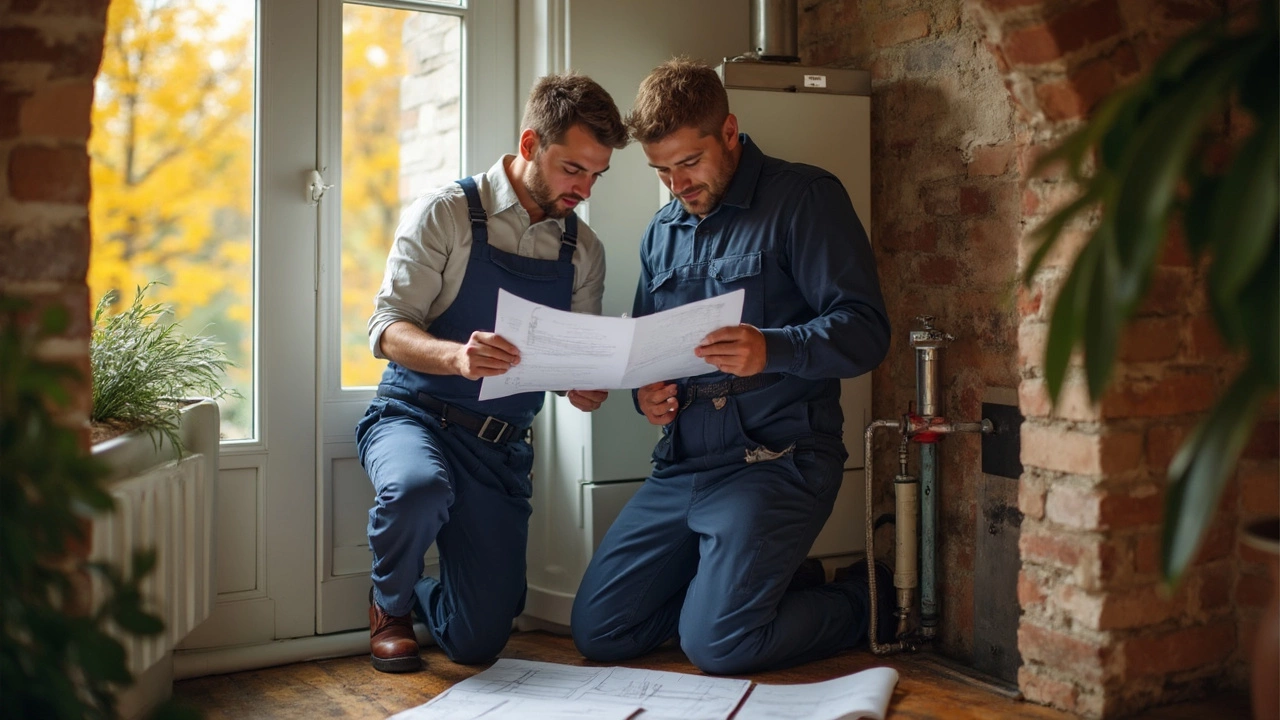
Not all plumbers can legally change boilers in New Zealand. Only licensed gas fitters can install gas boilers safely and comply with regulations. Learn what to look for, what to avoid, and why cutting corners is dangerous.
Getting a new boiler installed can feel like a big project, but it doesn’t have to be overwhelming. Whether you’re replacing an old unit or fitting a system for the first time, knowing the basics will save you time, money, and headaches.
Start by deciding what type of boiler fits your home. Most UK homes use a combi boiler, but if you have multiple bathrooms or a large garden, a system boiler might make more sense. Compare fuel options – gas is common here, but electric or oil are alternatives if gas isn’t available.
Once you know the model, look for a Gas Safe registered engineer. This is a legal requirement in the UK and protects you from unsafe work. Ask for quotes from at least two local companies, check their reviews, and confirm they include the boiler, labour, and any necessary pipework in the price.
Clear the area around the existing boiler and make sure there’s a clear path for the engineers to bring the new unit in. If you’re moving the boiler to a new location, discuss any extra work – like new flue routes or electrics – in advance so there are no surprise costs.
Turn off the gas supply and electricity to the old boiler. Your installer will handle this safely, but it’s good to know the steps. Have a spare key handy if you live in a rented property, as the engineer may need access to multiple rooms.
On installation day, the engineer will remove the old boiler, check pipe sizes, and fit the new unit. They’ll connect the gas line, attach the flue, and hook up the controls. A thorough test follows – the engineer will make sure the boiler fires up, the pressure is right, and there are no leaks.
After the test, ask the installer to show you how to operate the thermostat, set the timer, and reset the system if needed. They should also give you a copy of the building regulations compliance certificate and a user manual.
Even though the job is done, keep an eye on the boiler for the first week. Listen for odd noises, check for water around the pipework, and make sure the heating and hot water are working as expected. If anything seems off, call the engineer – most companies offer a short warranty period for post‑install issues.
Regular maintenance will keep your boiler running efficiently for years. Schedule a service once a year, clean the heat exchanger, and check the pressure. Cleaning the radiators and bleeding any trapped air also helps the system stay balanced.
Bottom line: a successful boiler installation is all about planning, hiring the right professional, and staying involved on the day. Follow these steps, and you’ll enjoy reliable heating and hot water without the stress.

Not all plumbers can legally change boilers in New Zealand. Only licensed gas fitters can install gas boilers safely and comply with regulations. Learn what to look for, what to avoid, and why cutting corners is dangerous.

Wondering if plumbers handle boiler installation or if you need a heating engineer? This article breaks down who installs boilers, how it’s done, and what to expect if you’re upgrading your heating system. Learn the requirements, real-world costs, and hidden tips to avoid mistakes. Get trustworthy, locally-relevant advice for your Wellington home.

Thinking about replacing your boiler? It's not as scary as it sounds. Learn what makes a boiler replacement a big job, what to expect during the process, and some handy tips to make the transition smooth. Understanding the ins and outs can save you a lot of hassle and ensure you make a smart investment in your home's heating system.